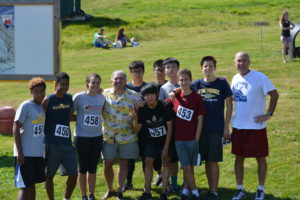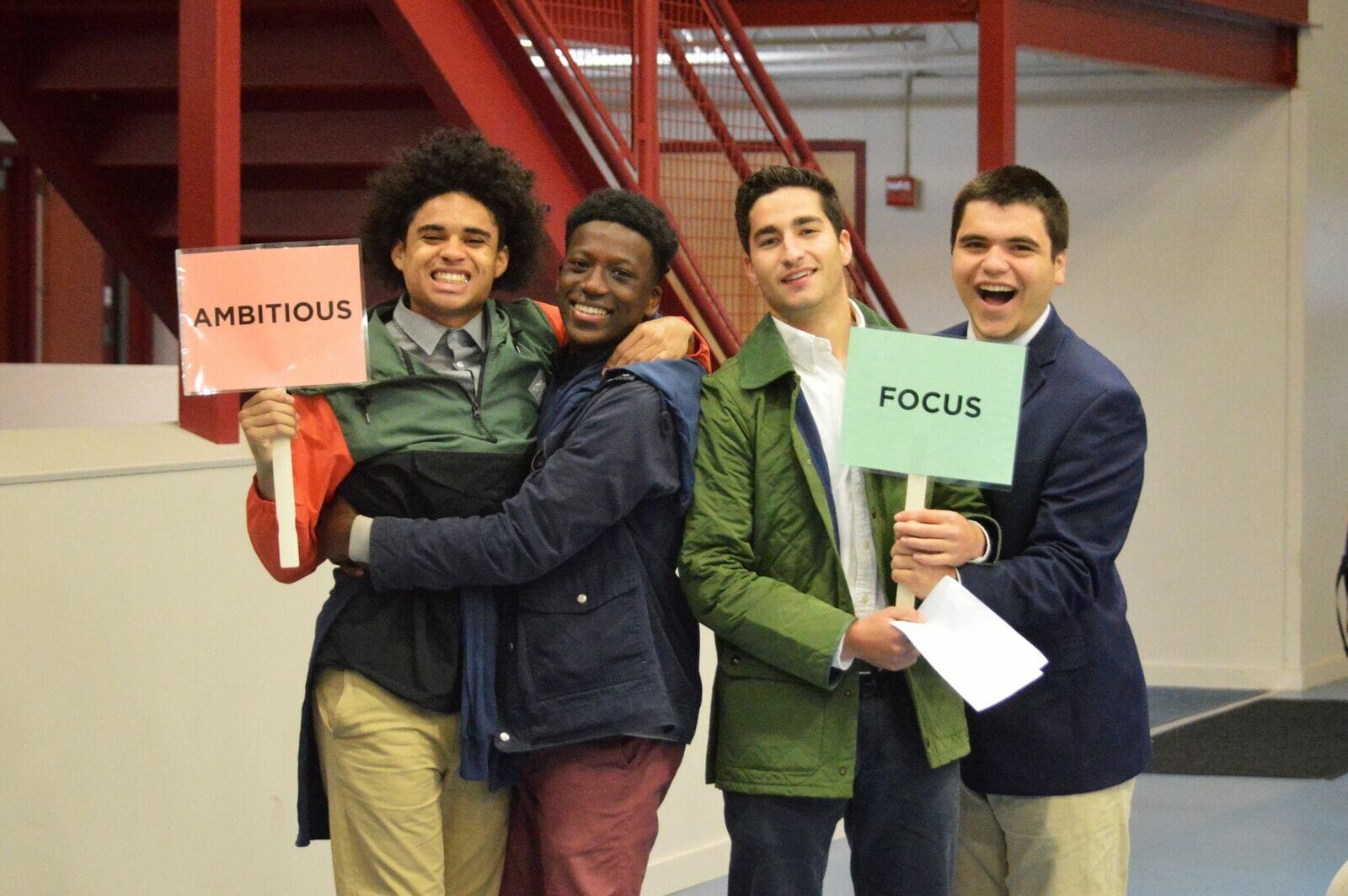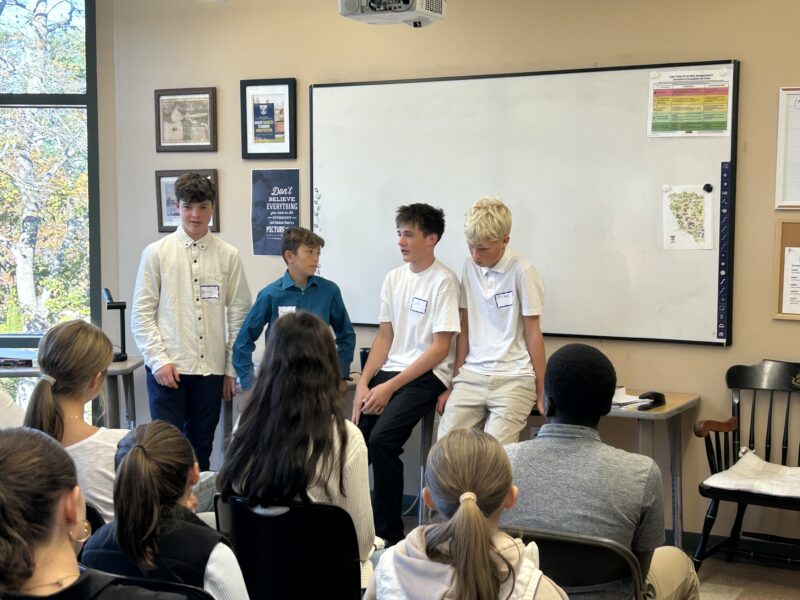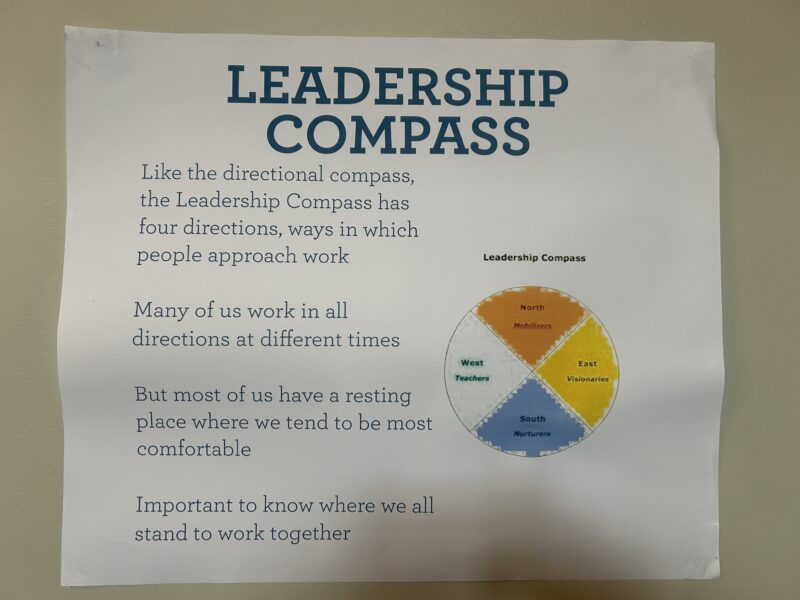
At last night’s “Evening Howl” (an on-line School Meeting we’ve been doing during these Covid times), I did a session on a Hyde tradition designed to help us “Aim High” called “The One Thing.” To explain, here’s excerpt from Laura’s and my book The Biggest Job We’ll Ever Have (Scribner, 2002):
“The One Thing” is an abbreviated form of “The One Thing I will do each day, not try to do.” Most of us want to improve the quality of life in our families, our schools, our companies, etc. Too often we are willing to settle for a vague commitment: “OK, let’s commit to spending more time together as a family.” When we make these commitments, we sincerely mean to live up to them. Then, competing interests with very specific commitments (for example, the ones that keep us going from 9:00 AM to 5:00 PM, Monday through Friday) encroach on this commitment and we end up making another vague commitment a few weeks later.
The One Thing can keep us on track. It enables us to take control of our own progress. Consider the student having trouble at school. Students in this predicament often become overwhelmed with factors that are out of their control:
- “I know that the teacher doesn’t like me.”
- “I’ve created a bad reputation for myself.”
- “I’ve fallen too far behind.”
- “I just don’t get this stuff!”
The student ends up focusing on what can’t be done. We will ask that student, “Can you control whether or not Mr. XYZ will like you?” After we get the correct answer (i.e., No), we ask, “Can you control whether or not you show up for study hall five minutes early and leave five minutes late?” After we get the correct answer (i.e., Yes), we reach agreement on the One Thing: “The one thing I will do each day is arrive at study hall five minutes early and stay five minutes late.” Another prescription for the same symptoms might be “I will raise my hand to offer an observation at least twice (once to ask a question, once to make an observation) in every class.” Rather than focus on the obstacles to a destination, the One Thing helps us begin to visualize specific steps that can begin to take us there.

Malcolm remembers utilizing this concept when coaching women’s soccer. After a few games, he analyzed the team’s play and statistics and called a team meeting. To a girl who’s shots frequently missed the net, he would say, “Twenty shots on net before every practice, that’s your One Thing.” Another student might be expected to do 20 head balls before practice and another might do 20 corner kicks. As the players began to endorse this system, it was common for them to discuss the concept routinely at team meetings: “I’ve messed up a lot of scoring chances lately, I’d like to switch my One Thing to 20 breakaways before practice.” “Sally, maybe you should switch your One Thing to throw-ins.” We kept records and each player could take pride in her progress rather than dwell on her shortcomings. The actual One Thing is not as important as the need for it to be publicly stated for all to hear.

The One Thing says, “Better to light a candle than to curse the darkness.” When faced with a difficult challenge, a focus on the enormity of the obstacle before us can cause us to lose sight of the initial tangible action steps we must take before we can reasonably expect any positive momentum to occur.
As a boy, it was Malcolm’s job to shovel the front walk of his home after snowstorms. He remembers his mother’s advice: “Malcolm, Never look ahead. Instead, look straight down and keep shoveling. Then, every once in a while, take a look behind you to admire the work you’ve done.” The One Thing teaches us not to focus on the hardship that lies ahead. Instead, focus on what we’re doing about it right now. Somehow, we will arrive at the right destination be it the front door with shovel in hand, the end of a difficult task, or the beginning of a new view of ourselves.
So, tell me, What’s your One Thing?!?
Onward, Malcolm Gauld



